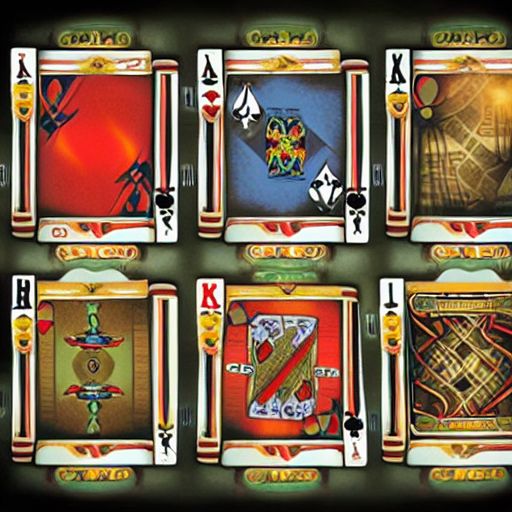Gambling, the act of betting or wagering money or something of value on an event with an uncertain outcome, has been a part of human culture for centuries. The history of gambling dates back to ancient civilizations such as China, Egypt, and Greece, where gambling was a popular pastime among the wealthy and the poor alike. Over time, gambling has evolved and adapted to changes in society, technology, and culture, shaping the way we view and participate in gambling today.
Early Origins of Gambling
The earliest evidence of gambling can be traced back to ancient China, where archaeological excavations have revealed that games of chance were played as far back as 2300 BCE. The Chinese played a game called “Keno” that was similar to modern-day lotteries. The game involved selecting a set of numbers and then waiting to see if those numbers were drawn. If the numbers matched, the player would win a prize.
Gambling also played a significant role in ancient Egypt, where games of chance were used as a form of divination. The Egyptians believed that the outcome of a game could predict the future and would often play games of chance before making important decisions.
In ancient Greece, gambling was a popular pastime among the wealthy and the poor. The Greeks played games such as dice and board games, and they would often place bets on the outcome of sporting events. Gambling was so ingrained in Greek culture that they even had a god of gambling, Hermes.
The Evolution of Gambling in Europe
As the Roman Empire spread across Europe, gambling became more widespread, and new games were invented. The Romans played a game called “Tabula,” which was similar to modern-day backgammon. They also played games of chance using dice and betting on sporting events.
In the Middle Ages, gambling was widely popular among the nobility and the peasantry in Europe. Games such as chess and card games were played for money, and the first casinos were established in Italy in the 17th century. The invention of the printing press in the 15th century made it possible to produce playing cards in large quantities, which helped to popularize card games throughout Europe.
Gambling in America
Gambling arrived in America with the first settlers, and it quickly became a popular pastime in the colonies. Lotteries were used to fund public works such as bridges and roads, and games of chance were played in taverns and at fairs.
In the 19th century, gambling became widespread in the United States, particularly in the West. Gold rushes and frontier towns brought a new wave of gamblers to the country, and new games such as poker and blackjack were invented.
The Modern Era of Gambling
The 20th century saw a significant change in the way people gambled, as new technologies and forms of gambling emerged. The invention of the slot machine in the late 19th century revolutionized gambling, making it more accessible and convenient for the masses.
In the 1960s, the state of Nevada legalized casino gambling, and Las Vegas quickly became the gambling capital of the world. The rise of the internet in the 1990s brought about a new era of online gambling, allowing people to play their favorite games from the comfort of their own homes.
Today, gambling is a multi-billion dollar industry, with casinos, lotteries, and online gambling sites operating around the world. The advent of mobile technology has made it even easier to gamble, with people able to place bets from their smartphones and tablets.
Conclusion
Gambling has been a part of human culture for centuries, and it has evolved and adapted to changes in society, technology, and culture over time. While the forms of gambling may have changed, the basic premise remains the same – the thrill of the unknown and the possibility of winning big However, gambling also comes with its risks, as it can lead to addiction and financial ruin for some individuals. As a result, many countries have introduced regulations and laws to govern gambling, such as age restrictions, licensing requirements, and measures to prevent problem gambling.
Despite the risks, gambling remains a popular pastime for millions of people around the world. Whether it’s playing the lottery, betting on sports, or hitting the casino, the allure of the chance to win big continues to draw people in.
In conclusion, the history of gambling is a fascinating story of human culture and society. From ancient China and Egypt to modern-day casinos and online gambling, the evolution of gambling reflects the changing values and attitudes of people over time. While gambling may have its risks, it will likely continue to be a part of human culture for generations to come.
